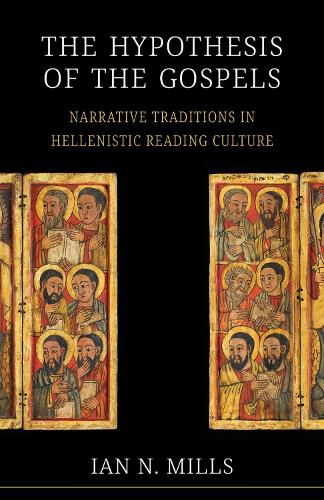Readings Newsletter
Become a Readings Member to make your shopping experience even easier.
Sign in or sign up for free!
You’re not far away from qualifying for FREE standard shipping within Australia
You’ve qualified for FREE standard shipping within Australia
The cart is loading…






The gospels were not the only books in antiquity to retell the same story. Ancient readers had their own language for describing works that retread the same narrative ground. Different versions of a story were imagined as sharing a narrative core, called a hypothesis. Early Christian readers adopted this conceptual model in order to describe gospel literature, legitimize its pluriformity, and limit its diversity. Even before the term hypothesis appeared explicitly, however, readers imagined gospels in roughly the same way. Christians did not radically reimagine the literary character of gospels at the end of the second century, when hypothesis language first appeared. Rather, the components of this model are already present in the earliest evidence for the reception of gospels. The standard model for thinking about pluriform narrative traditions in Hellenistic literary culture shaped the production and interpretation of gospel literature from the very beginning.
$9.00 standard shipping within Australia
FREE standard shipping within Australia for orders over $100.00
Express & International shipping calculated at checkout
The gospels were not the only books in antiquity to retell the same story. Ancient readers had their own language for describing works that retread the same narrative ground. Different versions of a story were imagined as sharing a narrative core, called a hypothesis. Early Christian readers adopted this conceptual model in order to describe gospel literature, legitimize its pluriformity, and limit its diversity. Even before the term hypothesis appeared explicitly, however, readers imagined gospels in roughly the same way. Christians did not radically reimagine the literary character of gospels at the end of the second century, when hypothesis language first appeared. Rather, the components of this model are already present in the earliest evidence for the reception of gospels. The standard model for thinking about pluriform narrative traditions in Hellenistic literary culture shaped the production and interpretation of gospel literature from the very beginning.